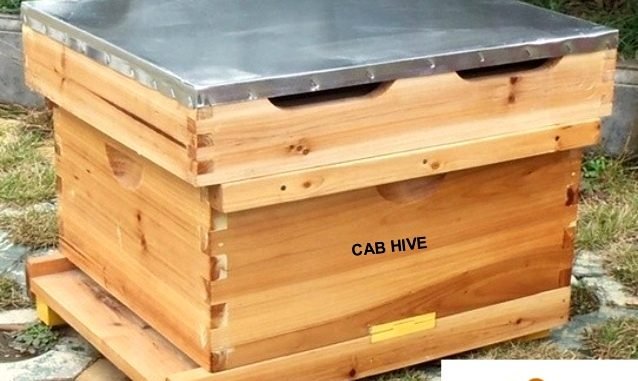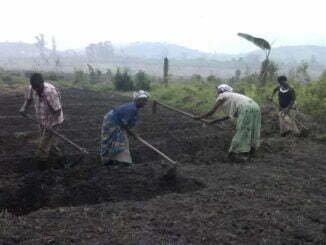
Kampala, Uganda | URN | Bee keepers in the country could earn extra money from hiring out their bee hives to big farms for pollination.
With the number of bees declining globally, experts in Apiculture say bees should now be valued for their role in pollination than in producing honey and beeswax.
Dickson Oteino, a Technical officer with Cab Hives Kenya says studies have found that commercial farmers can reap more yields with presence of more bees on the farm.
Otieno says in Kenya, both small-scale and large-scale farmers are slowly realizing that bees increase production on their farm.
Otieno, whose organization deals in distribution of modern beehives to twelve African countries including Uganda, says a farmer needs to have a modern beehive for easily transporting bees to places where they are needed.
He says for a fruit Orchard, the farmer will produce up to three times more than he would have done in the absence of bees on the farm.
Abubaker Kabubi, a bee farmer from Kawanda in Wakiso district, says many of the farmers especially those that use traditional methods of harvesting hardly think about conserving bees when they are harvesting honey.
Bees were recently part of the global focus at an international meeting in Malaysia, where scientists discussed the need to preserve small species that help fertilize more than three quarters of the leading kinds of global food crops and nearly 90 percent of flowering wild plant species.
The scientists note that people’s livelihoods and culture are intimately linked with pollinators around the world.
They noted that the volume of pollinator-dependent food produced has increased by 300 percent over the past 50 years, including most fruits from apple to avocado, as well as coffee, cocoa, and nuts such as cashews.
This according to the scientists shows an increasing dependence of agriculture on pollinators. Pollinator-dependent food crops now occupy around 35 percent of all agricultural land.



